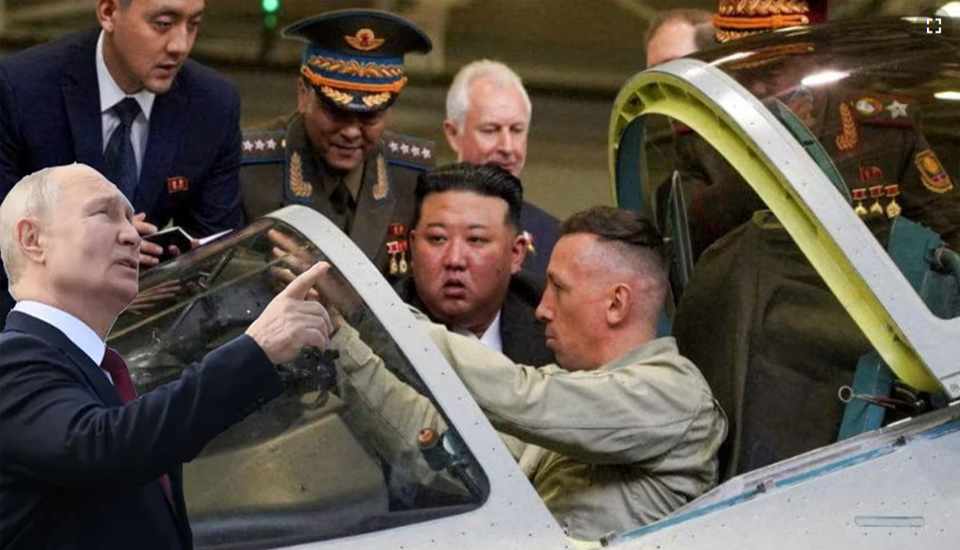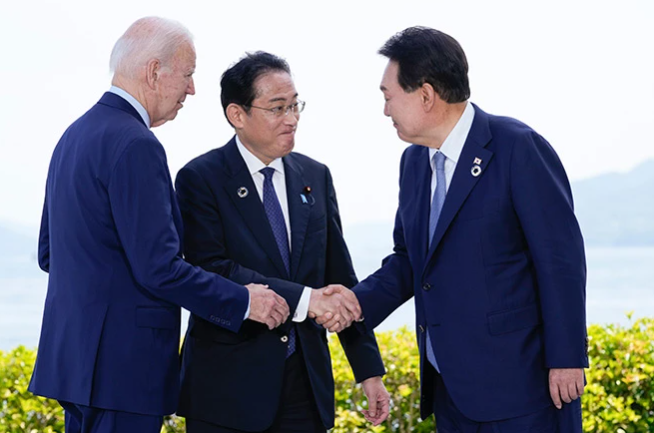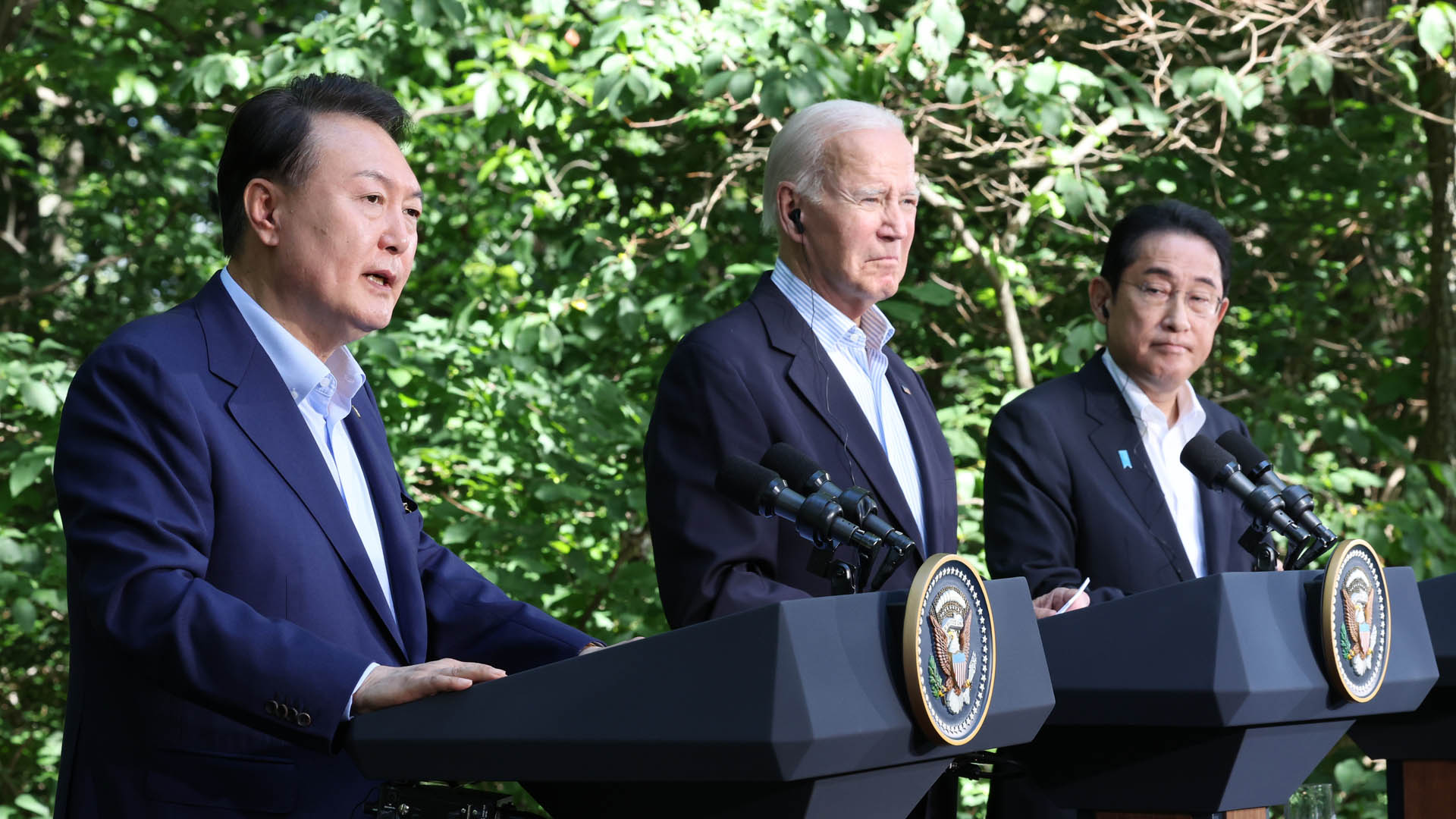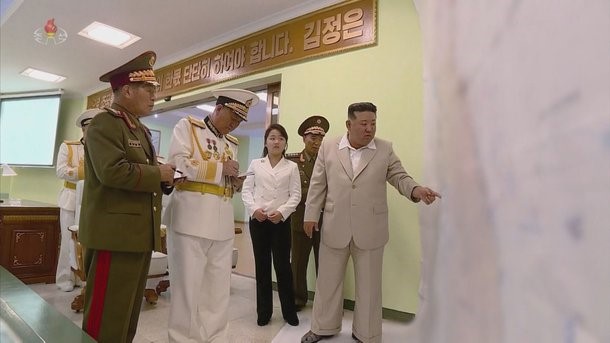
Analyzing the Russia-DPRK Summit and Its Outcome
Commentary | October 16, 2023
Yoonhee Kang
Professor, Kookmin University
Yoonhee Kang, Professor of Russian and Eurasian Studies at Kookmin University, analyzes that the recent summit between Vladimir Putin and Kim Jong Un is Russia’s “response” to the latest ROK-U.S.-Japan trilateral at Camp David. Pointing out that Russia has been maintaining distance from North Korea in an effort to manage ROK-Russia relations and to uphold international norms, Kang explains that Putin is now signaling a change in foreign policy as ROK-U.S.-Japan strengthen their trilateral security cooperation and pave way for bloc confrontation. As the balance of power in East Asia is shifting, Kang urges the Korean government to focus on crisis management through effective diplomacy.
The North Korea-Russia summit held at the Vostochny Cosmodrome in Russia on September 13, 2023, garnered global attention. The specific contents of the summit’s discussions remain elusive due to the absence of press conference, joint statement, or released agreement; however, the summit’s format, duration, and Kim Jong Un’s subsequent schedule in Russia show that this summit is for more important than Kim’s previous visit to Vladivostok in 2019. The summit clearly indicates that North Korea-Russia ties will become stronger going forward.
First, the fact that the summit was held at a Russian spaceport symbolically shows that the two countries are moving toward space cooperation. As experts have already noted, North Korea has been intensifying its efforts towards space militarization. DPRK has thus far pursued its space development initiatives independently without collaborating with any advanced nations. This independent pursuit has largely been limited and unsuccessful (Jang 2023). However, if Russia now helps North Korea develop its space program, it will potentially be able to realize its space program in the near future. This will lead to greatly improve North Korea’s rocket technology, and as a result, DPRK’s security threat to the region will be greatly exacerbated.
Meanwhile, Kim Jong Un also met with Russian Defense Minister Sergei Shoigu and toured the frigate Marshal Shaposhnikov to observe the Kalibr cruise missile and the Kh-35 Uran anti-ship missile system (TASS 2023a). This is in line with Putin’s statement that he will discuss “all issues,” including military and technical cooperation (BBC 2023). In other words, North Korea and Russia have publicly declared their intention to strengthen cooperation on military technology.
Additionally, the North Korean delegation has reportedly discussed cooperation with Russia in the field of agriculture, transportation infrastructure, and services. The intergovernmental committee agreed to meet in Pyongyang in November to discuss specific measures (TASS 2023b). It is very likely that the Russia-DPRK cooperation will involve substantive actions beyond mere verbal statements.
Apparently North Korea and Russia are adopting a foreign policy direction that is completely opposite to South Korea’s objectives. Since the establishment of diplomatic relations between South Korea and Russia in 1990, the South Korean government has sought to prevent Russia from fostering closer ties with DPRK by developing friendly bilateral relations with Russia. In addition, ROK attempted to engage Russia into resolving the DPRK nuclear problem by emphasizing the danger of security threat that the North Korean nuclear development poses in East Asia. In fact, Russia have participated in the Six-Party Talks and joined international sanctions against North Korea when North Korea conducted nuclear tests or launched ballistic missiles. However, the North Korea-Russia relationship today has reached a point where these policies are no longer effective.
The changing international dynamics followed by the Russian invasion of Ukraine in 2022 is what brought DPRK and Russia closer. In fact, prior to this invasion, Russia-North Korea relations were not as close as commonly assumed. During the COVID-19 pandemic, the borders between the two countries were virtually shut down. Furthermore, as was revealed during Kim Jong Un’s visit to Vladivostok in 2019, Russia was not inclined to readily satisfy DPRK’s needs. The only exception to this attitude was Russia’s provision of 50,000 tons of wheat to North Korea in the form of humanitarian assistance in 2020 (TASS 2023c).
So why did Russia change its stance on North Korea? The popular explanation is that Russia had no choice but to hold hands with North Korea in order to secure weapon supplies for its protracted war against Ukraine. In this context, some argue that Russia may not keep its promises on military and space cooperation with North Korea when its demand for ammunition greatly decreases after the de-escalation of the war. Some experts express the doubt on the possibility of transferring any significantly important military technology to North Korea.
However, one should keep in mind that Russia could have pursued arms deals with North Korea discreetly if the supply of weapons from North Korea is the only primary motive. It would not have needed the summit that drew all the attention from the world. It is a well-known fact that Russia is currently using Iranian drones, but there has been no grand diplomatic ceremonies between Russia and Iran. Therefore, it would be reasonable to assume that this summit has a specific meaning that goes beyond arms trade.
In a broader context, it is evident that the North Korea-Russia summit is Russia’s response to the ROK-U.S.-Japan trilateral summit at Camp David. Russia’s message is clear: if trilateral cooperation in Northeast Asia develops into a (quasi)military alliance aimed at both Russia and China, Russia will take corresponding measures. In other words, Russia will help North Korea’s space and military development and strengthen military cooperation with DPRK. From Russia’s perspective, it had distanced itself from North Korea out of respect for the ROK-Russia relations as well as in its adherence to international norms such as the Nuclear Non-Proliferation Treaty (NPT). However, Russia is now sending a signal that it will change its policy if South Korea actively participates in the anti-Russia (and anti-China) alliance.
The so-called “new Cold War,” characterized by bloc confrontation, is becoming a new reality today. We should not take comfort in the fact that the summit did not involve China in a trilateral format. Russia and China seemingly have held extensive consultations ahead of the North Korea-Russia summit. In fact, since August, the Russian and Chinese embassies in Seoul and Pyongyang have kept discussing Korean Peninsula affairs. Therefore, it is misleading to argue that China feels uncomfortable about the North Korea-Russia summit based on the assumption that the two countries are competing each other for influence over the DPRK. In the face of the strengthening of ROK-U.S.-Japan cooperation, Russia and China are compelled to strengthen their relations with North Korea as well as with each other. For them, now is the time to achieve a balance of power in the region against the trilateral alliance led by USA, and not to dwell on Russia-China rivalry.
In short, the recent North Korea-Russia summit marks a significant shift, not only in the North Korea-Russia relationship but also in the balance of power in Northeast Asia. The possibility of arms trade and military cooperation between the two countries has greatly heightened, and even more importantly, the two are moving towards forming a trilateral bloc with China. Recalling that the outbreak of World War I was attributed to the confrontation between the Triple Entente and the Triple Alliance, it is not an overstatement that the world is becoming increasingly perilous. Prudent diplomacy is needed more than ever.
References
BBC News Korea. 2023. “Kim Jong Un and Putin meet for the first time in four years, Russia ‘will help North Korea’s satellite development’ (4년 만에 만난 김정은-푸틴, 러시아 ‘북 위성 개발 돕겠다’).” September 13. https://www.bbc.com/korean/articles/c03j28nkl1no
Jang, Cheol-wun. “North Korea’s Space Development: The Gap Between Ideals and Reality.” Global NK Zoom & Connect, 2023. https://www.globalnk.org/commentary/view?cd=COM000115
TASS. 2023a. “Kim Jong Un, Shoigu Discuss Military Cooperation, International Affairs.” September 17. https://tass.com/world/1675931
TASS. 2023b. “Russia’s Delegation Discusses Agriculture, Transport Issues with Kim Jong Un.” September 17. https://tass.com/world/1676069
TASS. 2023c. “Russia Ready to Offer Food Assistance to North Korea–Russian Ambassador.” September 18. https://tass.com/politics/1676147
■ Yoonhee Kang is a Professor of Russian and Eurasian Studies at Kookmin University.
■ Typeset by Jisoo Park, Research Associate
For inquiries: 02 2277 1683 (ext. 208) | jspark@eai.or.kr
Security and External Relations

Dealing with North Korea Beyond the Korean Peninsula: Japan’s Perspective on a New Indo-Pacific Geopolitical Trend
Kei Koga | September 27, 2023

The Camp David Trilateral Summit Expands Trilateralism Beyond North Korea
Scott Snyder | September 21, 2023

Significance and Implications of Kim Ju Ae’s Public Appearance
Kyong Hui Choi | September 11, 2023
LIST